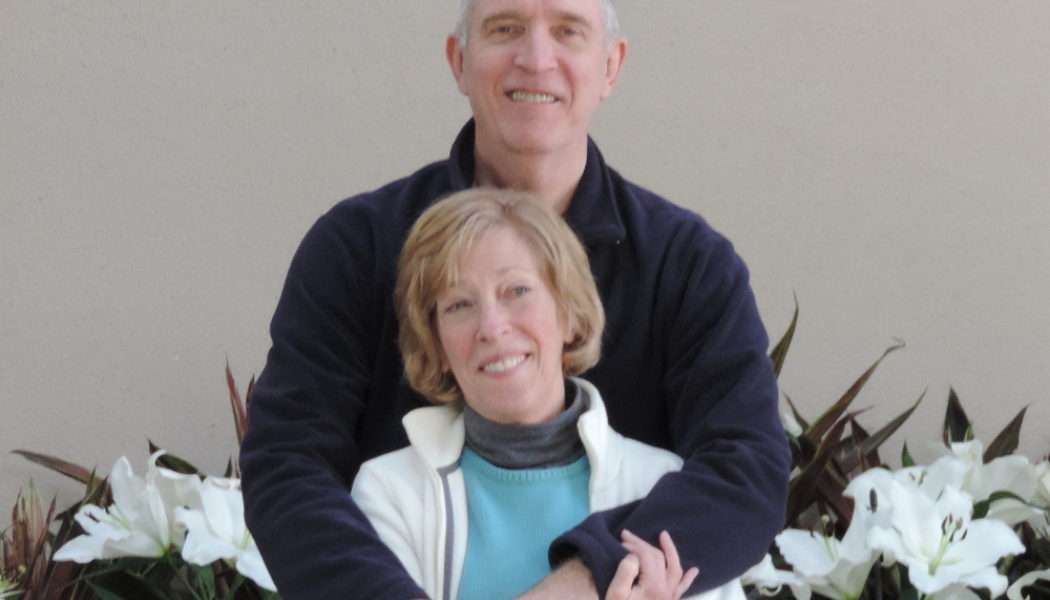Some of you have known me and Gary for years. And you may remember in 2010 when Gary blew through 3 drugs in a year and things looked pretty bad. He was so exhausted and debilitated from years of treatment that sometimes we used a wheelchair so he could enjoy being out without getting too tired.
In 2010, we decided to look for a clinical trial, since the remaining FDA-approved choices were “me too” drugs, other TKI inhibitors like Sutent. He was accepted as RCC patient #1 in an Interleukin15 trial at NIH and to everyone’s surprise, he got a response and a 6-month treatment break. This was a luxury we could not imagine.
During that 6 months, he trained like an athlete preparing for the Olympics and by the end of it was swimming a mile a day. And again to everyone’s surprise, he qualified for Interleukin 2 at OSU with Dr. Olencki—one of the few oncologists in the country who would accept a patient who had a prior history of TKI treatment. Gary took 41 tough doses of Il2 followed by SBRT and got 3 1/2 years off treatment.
We made good use of that 3 1/2 years, and gradually and cautiously returned to life. We had moments when it felt almost like cancer never happened. In various forms, we both returned to our medical physics careers and had the unexpected joy of working together again.
But in the last 1 1/2 years, we’ve seen the appearance of new metastatic disease in the pancreas and a new primary tumor in his remaining kidney. When it was time for another treatment, we considered trials and FDA-approved treatments. The remaining FDA-approved treatments were targeted treatments which offer time but with a noticeable change in quality of life.
We considered a lot of options, but Gary chose an early Phase 1 trial. RCC patient #2, Hyperacute Immune Renal vaccine trial plus Nivolumab. Immunotherapies offer not just time but the chance of something like a remission, a durable response.
My fellow KCCure co-founder Dr. Hammers hopes that vaccines plus anti PD-1 immune checkpoint inhibitors will be the treatment of the future, offering a better response rate than checkpoint immunotherapies alone and a good quality of life for the patient. Dr. Hammers is also Gary’s oncologist.
When we asked what he thought about the chance of success or the risk of side effects of this combo, Dr. Hammers said “We don’t know. We hope to find out by watching you.” Since there was no response to that combination, we’ve added ipililumab, an off-label drug for renal cancer and a combo with some known toxicity. This required about 20 trips to Baltimore and now a commitment to stay close to OSU for a few months, but we still move forward through these options with hope.
I think that’s the essence of being first and being in a Phase 1 trial. We make a tough trade and accept some risk for some hope.









